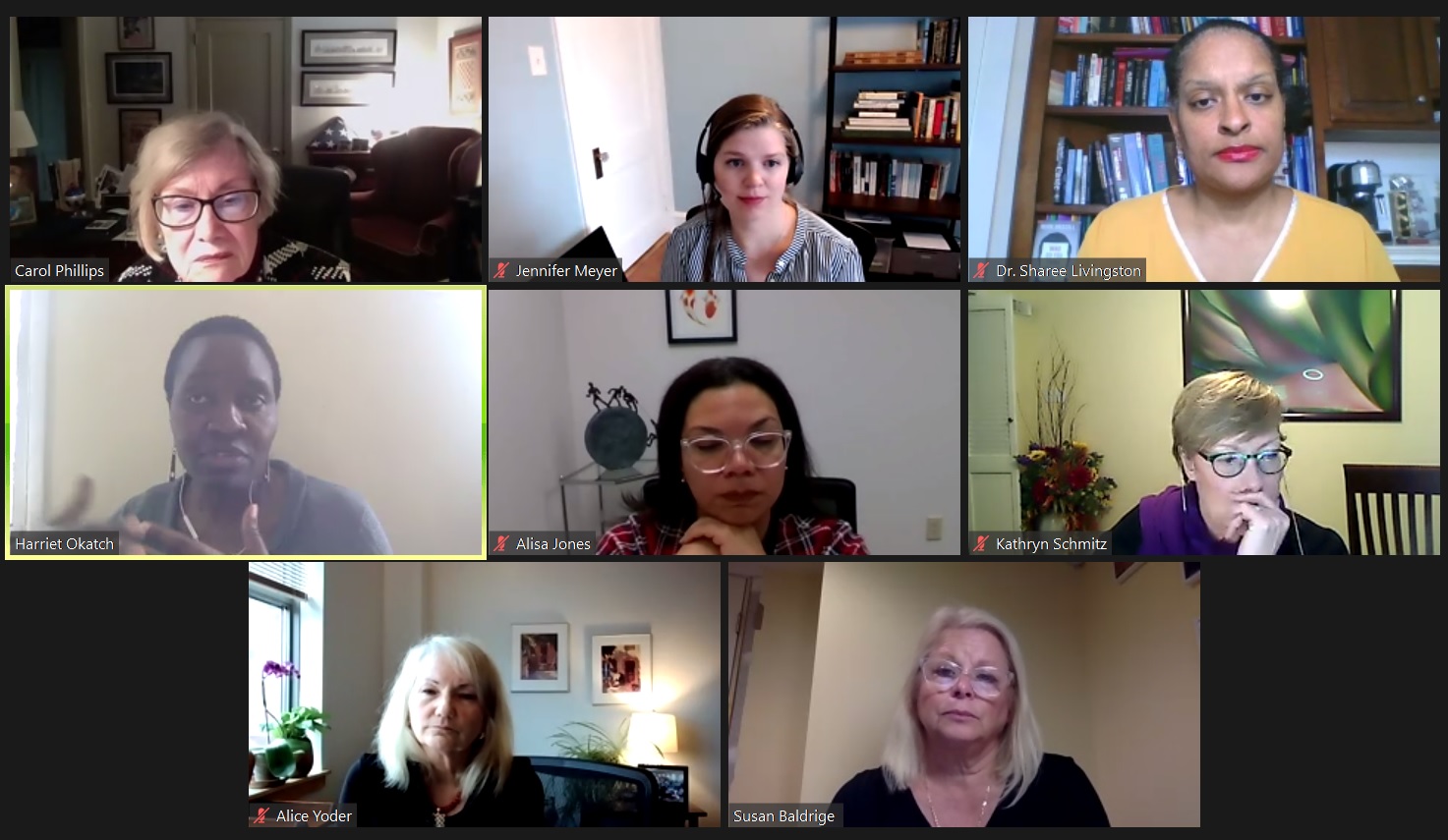There is strong community support for a public health department in Lancaster County, and the coronavirus pandemic has helped to demonstrate why more attention and resources for public health are needed, a panel of health professionals said Wednesday afternoon.
During a two-hour Zoom conversation, the panelists — all women, in honor of Women's History Month — discussed the economic benefits of preventing poor health outcomes rather than treating them after the fact; the complex social factors that influence health outcomes; and the effects of the racial and economic health disparities they see.
Watch: Forum on public health in Lancaster County
Jennifer Meyer, assistant professor of public health and government at Franklin & Marshall College, presented the results of a survey asking Lancaster County residents if they supported a public health department, given certain hypotheticals about costs and benefits.
The survey found that support was "fairly universal and pretty high," she said, with more than 90% of respondents saying they would be willing to pay $5 a year in higher taxes. Meyer defended the methodology against recent criticisms, saying it was scientifically sound and its estimates conservative.
Following Meyers' presentation, the panelists weighed in, stressing the role of public health infrastructure in advancing community wellbeing.
For example, having a local health department would allow real-time collection and evaluation of data on lead poisoning, a serious childhood issue in Lancaster County due to its aged housing stock, said Harriet Okatch, assistant professor of Biology & Public Health at F&M.
Instead, local researchers must rely on data provided by the state, which involves a time lag of more than a year.
Similarly, the lack of a health department initially hampered local efforts at Covid-19 contact tracing, said Alice Yoder, executive director of Community Health for Penn Medicine Lancaster General Health.
That's because the state was barred from releasing individual test results except to a public health entity. As a workaround, LG Health shared data internally — it performed around 80% of the county's Covid-19 tests — and set up sharing arrangements with other providers.
"Eventually we got it under control," Yoder said, "but it took a while" — a dangerous thing when dealing with a threat that can grow exponentially.
Forum excerpt: Lessons from the pandemic
For Kathryn Schmitz, professor of Public Health Sciences at Penn State Cancer Institute, the pandemic revealed a generational deficit in public health education, as demonstrated by the public's behavior during the pandemic and the reaction to public health measures intended to curb it.
Previous generations had first-hand experience of the waves of disease that vaccines have banished, but that knowledge has been forgotten.
"We have a massive need for educating down to the elementary school level," Schmitz said.
Alisa Maria Jones, president and CEO of Union Community Care, and Dr. Sharee Livingston, chair of the UPMC Litiz Obstetrics/Gynecology Department, stressed the importance of public health in rectifying disparities, and the vital importance of understanding individual patients' circumstances, life experiences and needs.
Covid-19 unveiled the injustices endured by people of color, Livingston said, and as a Black woman, "It's painful not only to see it but to live it. ... It's almost like being Black is a pre-existing condition."
The state's Covid-19 stay-at-home orders, Jones said, reflected assumptions "that had no basis in the reality of the lives of the patients that we serve." What are minor inconveniences for a suburban white-collar worker can be insurmountable obstacles for, say, a worker in a food plant who lives in an apartment with her children and parents.
The panelists agreed that public health efforts must look both broadly at "social determinants of health" — a category that includes both environmental and social factors — and longitudinally, at patients' life cycle and at the influence of one generation on the next.
They expressed optimism that public health can be a topic that can bring the community together to advance shared goals.
An audience of more than 100 watched the forum during the online livestream. It was sponsored by the United Way of Lancaster County, which underwrites One United Lancaster.






